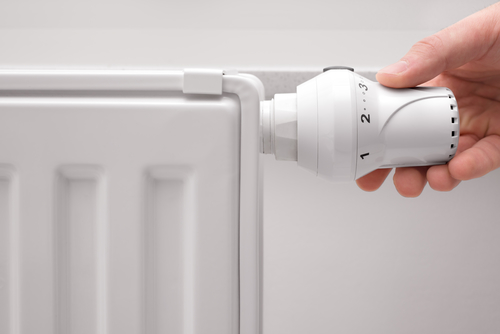 You may have run into the Btu acronym when reading performance labels on air conditioners and heating systems and wondered what it is. Btu stands for “British thermal unit,” and represents an integral component in our understanding of energy, engines, and modern heating systems. To understand this significance, we must first understand what it means.
You may have run into the Btu acronym when reading performance labels on air conditioners and heating systems and wondered what it is. Btu stands for “British thermal unit,” and represents an integral component in our understanding of energy, engines, and modern heating systems. To understand this significance, we must first understand what it means.
Examining each letter gives us an idea of what a Btu is. It was, by its namesake, defined by the British and is a member of measurement within the imperial system, which, although replaced in most countries (including England) by the metric system, is still the unit of measurement used in the United States. The word “unit” implies its usage in measuring things in a standardized way, similar to how an inch or a meter is used to measure distance. This leaves us with the word “thermal.” The word stems from the Greek word meaning “heat” or “warmth.” Words like “thermometer” and “thermos” come from the same root, and you can easily see the common meaning.
Thus, the Btu is a standardized unit for measuring heat. More specifically, Btu is the amount of energy required to raise the temperature of one pound of water by one degree Fahrenheit at sea level. More generally, a Btu is used to measure how much energy (aka heat) is needed to raise the temperature of water. Another similar measurement is the calorie, which is the amount of heat required to raise the temperature of 1 gram of water by 1 degree Celsius. While Btu is a unit of the imperial system, the calorie is a part of the metric system, however the two have identical applications. Both the Btu and calorie represent an attempt to relate how things heat up depending on how much work you put into it.
Historical Background
The Btu came at a moment in history when scientists and engineers were beginning to understand the physical laws behind how things heated up. Before the Btu, measurements for temperature were done using varied “rules of thumbs” that were inconsistent across the researchers using them. The Btu measurement represented the standardization of heat, meaning all researchers could speak the same language and produce consistent results.
Many of the technological innovations in the late 1800’s dealt with how we could use energy in productive ways, such as in the steam engine. In fact, most practical applications dealt with the application of energy on water, which explains why water is used as a basis for the Btu definition. At that time, scientists didn’t have a way to measure how systems reacted to energy input correctly. Thus, the Btu was born out of a desire to research, increase, and maximize our understanding and use of new technologies.
How Btu Relates to Power
We can expand our knowledge of the importance of the Btu with the concept of “power.” This concept of “power” is not power like political or physical power; it is a measurement of how much energy is used over time. The Btu, a unit of energy, is transformed into Btuh, known as Btu-hour. A similar unit you may be familiar with is the kilowatt-hour, used by electrical companies to assess how much electricity a household uses for billing purposes. Units that include a time element, like hour, relate to the rate at which things happen over the course of time. High Btuh means that a significant amount of energy is applied over a given period of time. Btuh is important because much of our energy supply industry depends on knowing how much power was delivered over a period of time. In particular, power is vital to the heating and air conditioning industries since they still use this measurement in metric-speaking countries.
The Meaning of Btu in HVAC
Btu’s are also relevant to the HVAC industry for their utility in calculating an appropriate size HVAC system for a particular household. The bigger a house is, the more energy required to heat the house to a desired temperature.
Whether a small house may get an HVAC that’s too large and cause overheating, or a large dwelling with tall ceilings gets an inadequate system that under-heats the house, the result is an unhappy customer.
Another unit related to the Btu is the ton, which measures the cooling capacity of an air conditioning system. It’s easy to become lost in the various terms used by the industry, but many are easily explained. Customers in the United States are more comfortable with Fahrenheit measurements, which makes the usage of Btu essential.
Summary
The important takeaways from this article are to realize that a Btu, a British thermal unit, is a unit of energy related to change in temperature. A Btu is like a calorie but is suited to the imperial system still used in the United States. Professionals in the HVAC industry use Btu to help ascertain suitable air conditioning system capacities for a given household, ensuring appropriate heating and cooling as well as reasonable power usage. Contact us for more information.
